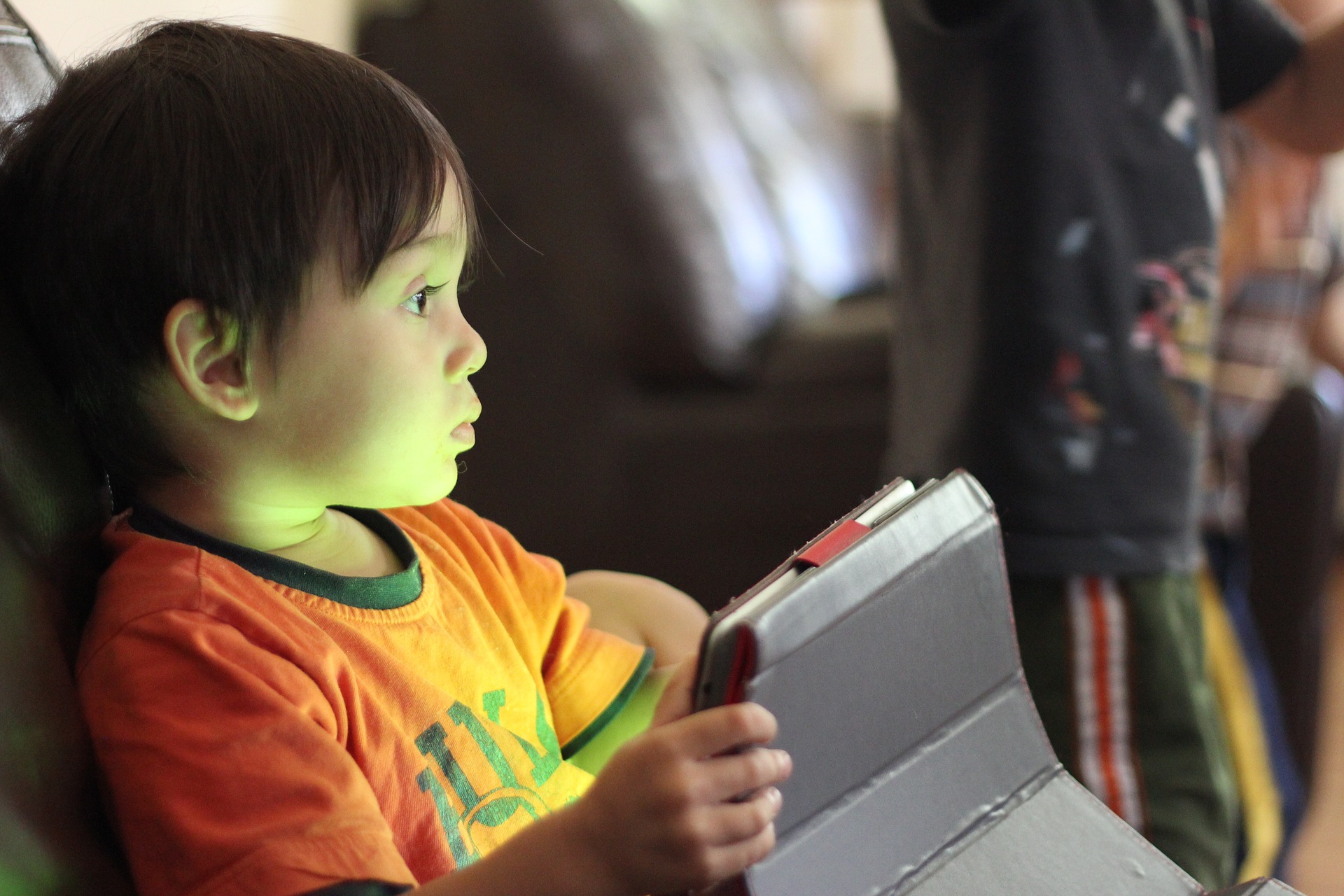Eliza Huie, author of Raising Kids in a Screen Saturated World, approached me a few weeks ago after reading my series on social media, technology and discipleship. We quickly discovered we share much of the same heart on issues surrounding these topics and her book offers some insight on how we, as parents, can approach these topics with our kids. I’m excited to have her share some of that insight with us as a guest blogger today!
Realities of the Digital Age
Have unwanted graphic texts, violent video games, pornography, cyber bullying, sexting, or screen addiction been a concern for you as a parent children in this cyber age? Do you feel overwhelmed in figuring out how to bring balance into your child’s screen use?
You are not alone.
These name only a few of the concerning vices that our screen-saturated world has brought about. Parents can feel lost in the digital landscape where their children are the technological experts and mom and dad struggle just to keep up. But keeping your child screen-free is about as realistic as keeping them from outgrowing their clothes.
If it isn’t already your reality, eventually your child will one day have that telltale rectangular pattern lining their jean’s pocket. Most parents are dependent on their child having a phone of some type in order to keep up with one another in this busy, fast pace life.
Despite the discouraging engagement that a world of devices can bring, the question to ask is this; Are screens really the problem?
Navigating the Digital Age
 Is the solution to avoid giving your child technology? Most parents have already found that is an unrealistic option. Screens enter children’s lives at early ages. Pediatrician’s offices have screens in their waiting room to help the children pass the time. Libraries rent colorful tablets that are preloaded with books and games for preschoolers. Schools begin using iPads at the elementary level and many students will be assigned a device at the start of a school year.
Is the solution to avoid giving your child technology? Most parents have already found that is an unrealistic option. Screens enter children’s lives at early ages. Pediatrician’s offices have screens in their waiting room to help the children pass the time. Libraries rent colorful tablets that are preloaded with books and games for preschoolers. Schools begin using iPads at the elementary level and many students will be assigned a device at the start of a school year.
Parents fighting for screen-free space in their family can wrongly vilify the device as the problem. But if the screen is not the problem what is? A motivational factor for writing my book was the realization that parents, like me, need practical answers to this tension. It was my desire to address the heart issue and understand what God-honoring screen use looks like. Consider the following:
“We are not fighting against technology. Phones, tablets, laptops, etc., are amoral. They are tools that can be used for good or evil. Don’t over- spiritualize activities because they either include or exclude a screen. Certainly there are times where living a life pleasing to the Lord will mean the intentional absence of screens but keep in mind that the screen is not the enemy. The frailty of weak and wandering hearts turns a potentially helpful tool into an instrument of destruction. In a world so profoundly dependent on technology, the answer is not to label devices as the problem and avoid them. Rather, reflect on what technology is revealing about what is in your heart and your children’s heart.”[1]
The Deeper Issues of the Digital Age
This approach deals with the deeper issue. Conversations about what is driving screen activity are most important. What is motivating what they consume, produce, and promote online is the deeper issue for parents to explore. The screen simply gives a platform for the heart. As parent’s we want to know and address the heart of our kids.
Recognizing that technology or screens are not the root problem will create an avenue to see the potential positive use that screens can bring into your child’s world. Rather than focusing on the screen consider how to better understand what is alluring your child and begin to have conversations there.
One of the things I attempted to do in writing this book was to give parents helpful questions to ask their child to begin conversations. These questions are intended to draw out the heart rather than to put the child on the defense about their screen use. For example, asking your child “What areas of our family life to you feel would be good to be screen-free?” or “What are ways you think we can use our screens to engage each other? Questions like these allow the child to enter into the conversation and share their thoughts.
With this disposition you are focusing on the relationship above screen issues.
That allows for conversations that reveal their heart and puts you in a much better place to walk with your child in this screen-saturated world.
[1] From Raising Kids in a Screen-Saturated World. Available at 10of Those.com and Amazon.
Guest Blogger: Eliza Huie is the executive director of Life Counseling Center in Marriottsville, Maryland. She is a biblical counselor and author of Raising Kid’s in a Screen-Saturated World, a readable, practical, and much needed book for all parents. Eliza and her husband Ken have three grown children.

For more information about
- Kids in Worship
- Determining which Type of Family Ministry model works best for your church
- Discipleship in Intergenerational community
- Encouraging the continued conversation through Practical Discipleship at Home
- Seminars, Workshops, Coaching
Check out to ReFocus Ministry or “like” our Facebook page. Join our conversation at theReFocus Family and Intergen Ministry group on Facebook.
About this Blog

Refocus Ministry was started by Christina Embree, wife to Pastor Luke, mom to three wonderful kids, and church planter at Plowshares BIC. With years of experience in family ministry and children’s ministry, she is passionate about seeing churches partnering with families to encourage faith formation at home and equipping parents to disciple their kids in the faith. She recently graduated with a Masters of Arts in Ministry focusing on Family, Youth and Children’s Ministry at Wesley Seminary, she also blogs at www.refocusministry.org and is a contributing blogger at D6 Family, ChurchLeaders.com, and Seedbed
*The advertisements at the bottom of this page are chosen by WordPress, not by ReFocus Ministry, and do not necessarily reflect the opinions and values of the author.


2 Comments